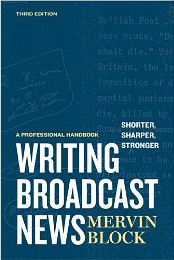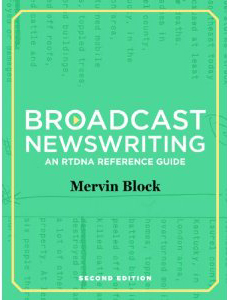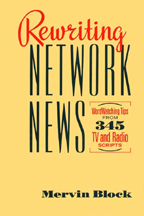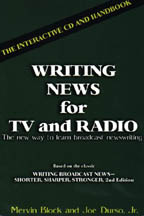A new theory: the bigger the story, the worse the coverage. It’s only a theory, but it sure applies to a CNN broadcast of March 25. What struck me were the stories delivered by the fill-in anchor, Brianna Keilar, from 6 to 7 p.m. Chances are, she didn’t write that ‘cast but only read it. (At Inside CNN, CNN asks, “Do anchors write their own stories?” CNN’s answer: “All of our anchors have journalism and broadcasting backgrounds and have the ability to write their own stories.” The ability to, but CNN does not say they do.)
Much of what Keilar said during that hour was wrong, even worse than wrong. The first words Keilar spoke at the top of the hour were: “Happening now, breaking news: shoot-out, gunfire and explosions rocking the streets of the Belgian capital, terror raids continuing to unfold there and beyond. Multiple plots now believed to be in the works. Will a series of new arrests disrupt them?” She’s asking me?
The time in Brussels is six hours ahead of EDT, but CNN’s presentation implied…with “happening now”—that the violence and police activities were taking place around midnight in Brussels. Not so. The AP had carried a rundown of the day’s highlights in Brussels (in local time). The last entry was at 2:55 p.m., EDT. After noon EDT, the AP’s roundups did not mention any of the events in Belgium that Keilar reported as “happening now.” Which tells me they were not happening now. Strike 1!
Keilar went on to say, “And there’s breaking political news tonight. Republican presidential candidate Ted Cruz blaming rival Donald Trump for what Cruz is calling a tabloid smear…. Tonight, Trump is responding. And the war between the two men is….” War? Sounds like overkill. Tonight, Trump is responding? Ben Jacobs of the Guardian reported Trump’s response at 11:44 a.m. ET. “Breaking political news”? No, it wasn’t breaking. About 1:40 p.m., a CNN anchor/correspondent, Pamela Brown, said, “Just moments ago, Ted Cruz escalated his feud with Donald Trump….” About half an hour earlier, at 1:16 p.m. EDT, NBC News carried an article quoting Cruz — and Trump’s response. Strike 2!
Another story Keilar said was breaking—shortly after 6 p.m.—was the Pentagon announcement that U.S. forces in Syria had killed a top ISIS figure — But more than 10 hours hours earlier, at 7:46 a.m., CNN’s own wire service had carried that news and updated it at 8:11 a.m. At 10:23 a.m., The Daily Beast told of the effort to capture the ISIS figure alive; the AP moved that story at 11:57 a.m. Yet Keilar said, six hours after the AP carried that story, “Tonight, sources are telling CNN the U.S.intended to capture him alive.” Not true. Contrary to what Keilar said (a few minutes after 6 p.m.), CNN’s wire service had reported, almost six hours earlier, at 1:26 p.m., “The U.S. operation was intended to capture him alive, a U.S. official told CNN.” Strike 3!
About 6:26 p.m., Keilar said, “And we do have breaking news continuing next. [Does that mean non-stop—or non-start —breaking news?] We will go back live to Brussels….” Then she said, “And the breaking political news, Ted Cruz accusing Donald Trump of a political smear.” The NBC story, mentioned earlier, reported that at 1:16 p.m., five hours before Keilar called it breaking political news. Strike 4!
A CNN announcer again said, “This is CNN breaking news.” Keilar then innovated, using a phrase I’ve never heard before: “Major breaking news.” Major. That turned out to be a string of anti-terror police raids in Brussels and arrests reported hours earlier. In the first four minutes of Keilar’s broadcast, she used breaking five times. And an announcer used it once. Strike 5!
Largely missing from the oldscast (can’t call it a newscast) were verbs, the muscles that make sentences go. Instead, those CNN scripts relied, as they usually do, on participles, which function as adjectives. So they don’t have the get-up-and-go that makes sentences move. Writers who rely on participles apparently don’t know they’re not verbs. As a result, their faulty sentences—based on the ing thing—are laughable, sometimes even cryable.
A subhead over a story in the Washington Post four years ago (April 20, 2012) summarized the breaking pandemic: “Breaking news used to be ‘news of transcendent importance.’ Now it’s a joke.” No joke, though, are scripts that are false.
© Mervin Block 2016
S A L E !The Merv Block bookshelf on broadcast newswriting. |
 SALE SALE  |
 SALE SALE  |
|
|
S A L E !“Writing Broadcast News” and “Broadcast Newswriting: The RTDNA Reference Guide” “Rewriting Network News” and “Writing News for TV and Radio” All four of Block’s books about newswriting: $121—a saving of $30. Buy direct from the publisher, CQ Press. Or email: customerservice@cqpress.com Or call toll-free: 866-427-7737. |